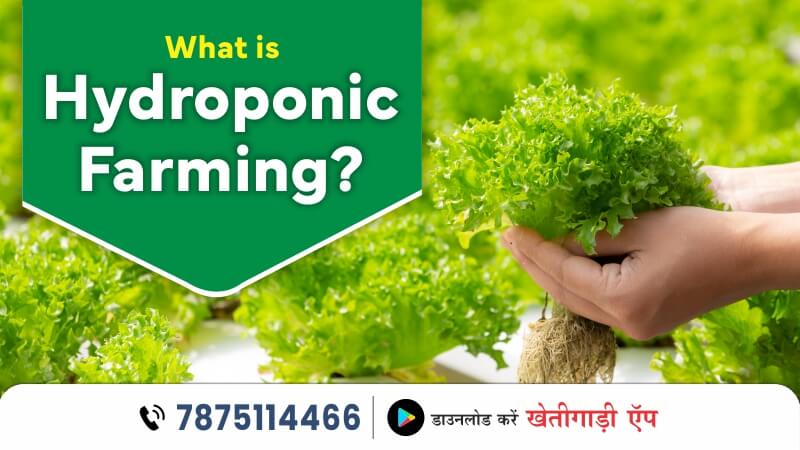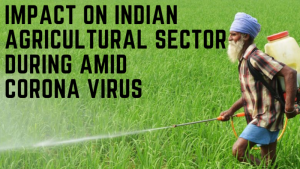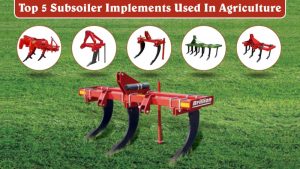In order to fulfill the daily requirements of a 9.8 billion-person global population, 68 percent of whom are expected to reside in cities, by 2050, we will need to boost food production by nearly 70 percent. Fortunately, our current agricultural system is capable of handling this enormous challenge. We would not be close to achieving this level of development by 2050 if we projected a linear gain in yield from our agricultural output during the previous five decades.
Every day, new technologies are developed around the globe. The agriculture sector is creating innovative methods to generate food using less land and less water as the global population rises. In this direction, the hydroponic growth system is.
Crops are grown using a technique known as hydroponics, sometimes known as “soilless farming.” The roots of the plants in a hydroponic system develop in a liquid nutrient solution or inside moist inert substances like Rockwool and Vermiculite. Essential plant nutrients are combined with water to create the liquid nutrient solution.
Either a static liquid solution or a continually flowing nutritional solution suspends the plant roots.
Hydroponics in India:
In India, hydroponics is gradually gaining acceptance and drawing more and more farmers. In essence, hydroponics is a branch of hydroculture-a technique for growing plants, typically crops-without soil by employing nutritional mineral solutions dissolved in water as a solvent.
Even a small area like a balcony can be used for hydroponic farming, which is soilless, water-based gardening. Crops are given nutrient-rich water instead of using soil to feed plants, which greatly reduces the drawbacks of soil-based methods.
Starting a hydroponics farm in India is a straightforward but effective step you can take. The hydroponics farming industry has experienced growth.
Numerous public and commercial institutions provide certification and certificate programs in contemporary farming practices including aquaponics, hydroponics, etc.
The majority of the courses offered under modern farming techniques are divided into short- and long-term options.
Benefits of Hydroponic farming:
Standard field farming methods have received a lot of bad press, including articles concerning soil erosion, excessive water use, and outbreaks of food-borne illnesses.
Many of these issues are addressed by the hydroponic farming sector.
The benefits of Hydroponic farming are listed below:
- Lower Space
- In order to locate water and all the nutrients they require to survive, soil-grown plants must spread their roots as far as possible. This implies that they need to be planted a set amount of space apart.
- Roots do not need to spread in hydroponic systems since water and nutrients are provided right to them.
- In comparison to soil-based systems, hydroponic systems are able to grow more plants in the same amount of area.
- Conservation of water
- Did you realize that agricultural farms consume the maximum of water?
- Water loss causes field farming to require a lot of water. Much of the water is rendered useless through evaporation, rolling away, and puddles.
- Because water is distributed in a controlled manner, hydroponic systems use around 10 times less water. Additionally, some systems circulate water, further lowering use!
- Fewer Chemicals
- Although pest problems aren’t completely eliminated by hydroponic systems, they do reduce their likelihood, which reduces the requirement for pesticides and herbicides.
- Weeds can’t take over your garden since hydroponic systems are tightly maintained. Herbicides are therefore not required.
- Additionally, pesticides are not required because hydroponic systems are frequently indoors where they are less vulnerable to invasion by pests.
- Quicker Growth
- Compared to soil-grown plants, hydroponic plants develop between 30% and 50% faster.
- Because they receive the right amount of nutrients and are produced indoors, crops grown in hydroponic systems grow more quickly (like weather and pests).
- Different animals have different speeds. For instance, fruits like tomatoes and leafy greens like lettuce typically grow more quickly in hydroponic systems.
- Nutrient Management
- The farmer has more control over which nutrients their crops absorb thanks to hydroponic systems, which feed plants a nutrient solution diluted with water.
- For a soil-grown cultivar to survive, fertilisers might be required. However, under hydroponics, the plants are already getting all the assistance they require in the appropriate quantities.
- Grow inside
- The simplicity of indoor hydroponic growing is another advantage.
- Growing inside has its own advantages, including the ability to control temperature and climate, year-round growth, and a lack of pests.
- In order to manage the environment, hydroponic systems are typically used inside. Plants grow more quickly and stronger when the growing environment is nearly ideal.
- Enhanced Plant Health
- Hydroponic farming produces more robust plants than soil farming.
- In hydroponics, for example, there is no soil, therefore diseases that are transmitted through it cannot flourish and spread.
- Additionally, plants can focus their energy on developing rather than having to spread their roots out in quest of nourishment.
- Greater Yields
- Hydroponic farming often produces more per square foot than soil farming because more plants may be grown in limited space.
- Additionally, plants are stronger and grow more quickly, producing more products more quickly.
- Plants that continue to produce after the initial harvest can be harvested more than once since indoor growing conditions allow for year-round cultivation regardless of the climate or season.
- Zero soil erosion
- In the last 150 years, field agriculture has degraded half of the soil on Earth, reducing the amount of arable land.
- Systems using hydroponics do not utilize soil.
- Lack of soil prevents soil erosion. It’s that easy.
- No Weeds
- Weed seeds cannot survive in hydroponic systems.
- Although seeds are not commonly sown in hydroponic systems, weeds require the same conditions as other plants in order to sprout. The system can then be adjusted to focus on the growth stage rather than germination.
- Weeds won’t establish a root system and scavenge the vital nutrients from your crops because the seeds can’t begin to germinate.
To know more about other farming techniques, or other crop farming-related queries install the KhetiGuru application. For tractor, tractor price, tractor games, and news updates visit the KhetiGaadi website.




